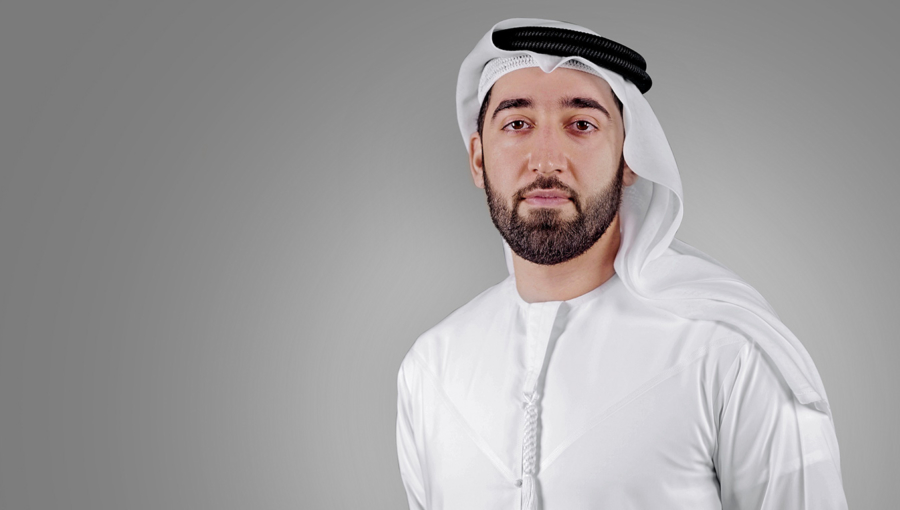- World Economic Forum produces toolkit in collaboration with Dubai Future Foundation and the World Economic Forum Centre for the Fourth Industrial Revolution UAE
- World Economic Forum Centre for the Fourth Industrial Revolution UAE to improve organisations’ vital tech infrastructure post pandemic
- Need for greater transparency and visibility of supply chains has been highlighted by COVID-19 outbreak, blockchain technologies provide answers
In collaboration with the Centre for the Fourth Industrial Revolution UAE and Dubai Future Foundation (DFF), the World Economic Forum has released a comprehensive blockchain toolkit to offer businesses and organisations new, industry-tested solutions to the urgent issues impeding global supply chains, which have been exposed by the coronavirus (COVID-19) pandemic.
The Redesigning Trust toolkit provides tools, resources, industry insights and best practices for organisations seeking ways to improve traceability, visibility, accountability and end-to-end, real-time communications for businesses bug and small.
The toolkit has been developed through deep analysis of projects and use cases of more than 100 blockchain stakeholders from more than 60 public- and private-sector entities across the world focused on supply chain logistics, including prominent work and feedback from the Dubai Future Foundation and World Economic Forum Centre for the Fourth Industrial Revolution UAE.
Commenting on the release of the toolkit, Abdulaziz AlJaziri, Deputy CEO and Chief Operating Officer of Dubai Future Foundation, said: “As a test-bed for technological innovations and ideas that drive transformations in vital industries, DFF’s contribution to the toolkit will greatly benefit decision-makers, entrepreneurs and businesses in defining their future strategies.
He added: “The pivotal role DFF played in formulating and executing the Forum’s seminal blockchain toolkit is an example of how our expertise directly contributes to pathfinding, and how our solutions-oriented approach to major global issues can provide opportunities for the wider world beyond Dubai and the region.”
Ahead of the toolkit’s release, it was trialled by DFF and World Economic Forum Centre for the Fourth Industrial Revolution UAE, with the Abu Dhabi Digital Authority, to offer real-world feedback on its use and effectiveness, in addition to providing alignment with the UAE’s blockchain infrastructure development strategy. The outcomes and insights derived from the trial were shared and incorporated into the final publication.
The UAE and DFF also played crucial research roles in the formulation of the toolkit with a whitepaper penned by World Economic Forum Centre for the Fourth Industrial Revolution UAE entitled Inclusive Deployment of Blockchain: Case Studies and Learnings from the United Arab Emirates. The paper identified that common challenges to further blockchain deployment across vital sectors are linked to operational and regulatory uncertainties, as opposed to technical factors. The challenge was not about identifying the right blockchain technology for a specific need, the paper found, rather it was about providing supportive structures to sustain blockchain technology.
Mariam Al Muhairi, Project Manager World Economic Forum Centre for the Fourth Industrial Revolution UAE at Dubai Future Foundation, said: “The role blockchain technologies can play in the economic recovery post the COVID-19 disruption will be critical. The upheaval has dislocated economies and ecosystems, and has hindered supply chains because of a lack of transparency, visibility and traceability on goods being moved around the world.
She added: “Moving forward, there must be an emphasis on rebuilding global trade networks by learning and putting into practice the lessons emerging from this pandemic. The solutions that blockchain technology provides, outlined in the Redesigning Trust toolkit, can go a long way to future-proofing and safeguarding businesses in the recovery and adaptation to the new normal.”
Nadia Hewett, Blockchain and Digital Currency Project Lead, World Economic Forum said: “When developing governance for emerging technologies, the exchange of knowledge and need for collaboration are key. For this reason, contributors of Forum’s blockchain deployment toolkit included a diverse group of leaders from governments, companies, start-ups, academic institutions, civil society, international organizations and experts from across the globe,”
Hewett added: “The United Arab Emirates played an integral role in shaping the toolkit. We are grateful to the World Economic Forum Centre for the Fourth Industrial Revolution UAE and the Dubai Future Foundation for driving inclusive deployment of blockchain technologies and for sharing tried-and-tested lessons and best practices to benefit all.”
With over four trillion consumer products made and shipped around the world each year, from vital medical supplies to home office furniture and supplies that can help SMEs and start-ups continue to provide a robust backbone to emerging economic, the need for greater efficiencies, resilience and adaptability is clear, and the Forum’s blockchain toolkit provides insights for public and private sector entities to re-enter and compete across markets.
